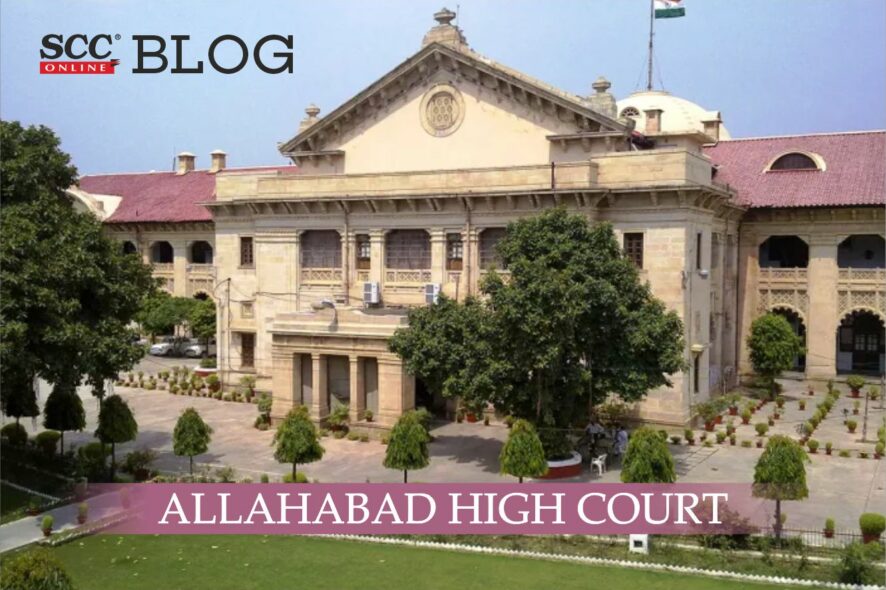Allahabad High Court: In a writ petition filed by Flipkart, seeking quashing of the First Information Report (FIR) for offences under Sections 406, 420, 467, 468, 471, 474 and 474-A of the Penal Code, 1860 (IPC), the division bench of Suneet Kumar and Syed Waiz Mian, JJ. while quashing the FIR, has observed that an intermediary is not liable for any third-party information, data or communication link made available or posted by it, as long as it complies with Sections 79(2) or 79(3) of the Information and Technology Act, 2000 (‘IT Act’), and as Flipkart is an intermediary providing merely access to sellers/buyers and has exercised ‘due diligence’ under Section 79(2)(c) IT Act, 2000, thus, it is exempted from any liability under the IT Act.
The issue of the case is whether an intermediary as defined under Section 2(1)(w) of the IT Act, 2000 would be liable for any action or inaction by a party or a vendor/seller making use of the facilities provided by the intermediary in terms of buyers/sellers terms of use of the company.
In this case, the respondent alleged that he ordered a laptop from Flipkart, but it was having processor of brand ‘A.M.D’ instead of brand ‘Intel’, thus, the delivery of the product was not as per the specifications for which order was placed. Thus, aggrieved, the respondent registered a complaint with Flipkart regarding the alleged discrepancy of the product. The complaint was taken up by Flipkart as per their Dispute Redressal Policy, with the seller, but he declined to replace or refund the consideration of the product, stating that the product was dispatched as per specifications purchased by the respondent. Thereafter, the respondent lodged a complaint against Flipkart.
Flipkart raised a challenge to the impugned FIR seeking its quashing, inter alia, on the ground that it is an e-commerce platform that provides access to buyers and sellers through their website, where they meet and interact to execute purchase and sale transactions, subject to terms and condition as set out in the buyers/sellers terms of use (‘Flipkart Terms of Use’), and Flipkart is not a party to or in control of any such transaction between its users. Thus, claimed protection under Section 79 I.T. Act, 2000.
The Court observed that Section 79 is a safe harbour provision. Further, internet intermediaries give access to host, disseminate and index content, sell-buy products and services originated by third parties on the internet, that includes e-commerce intermediaries where the platforms do not take title of the goods being sold. Moreover, as per Section 81 of IT Act, 2000, Section 79 has an overriding effect.
The Court referred to the ruling in Avnish Bajaj v. State (NCT) of Delhi, 2004 SCC OnLine Del 1160, and observed that intermediaries stand on a different footing being only facilitator of the exchange of information or sales. Further, prior to the amendment the exemption under Section 79 did not exist, therefore, an intermediary was liable for any third-party information or data made available by it, but the 2008 amendment introduced Chapter XII to the IT Act, 2000, which ceased the liability of an intermediary, if it satisfied certain requirements as detailed in Section 79 of IT Act, 2000.
The Court observed that Flipkart does not follow inventory-based model of e-commerce, where inventory of goods and services is owned by e-commerce entity and is sold to the consumers directly, thus it comes within the meaning and definition of ‘intermediary’ under Section 2(1)(w) of the IT Act, 2000, and would be entitled to the exemption from liability in terms of Section 79 IT Act, 2000, if the requirements are met.
It was also observed that Flipkart is not the seller, and the sellers are registered with it, who sellproducts and services on its platform and are solely responsible to the customer. Further, it cannot be expected that the provider of the online marketplace is aware of all the products sold on its website, but such provider must put in place a robust system to inform all sellers on its platform of their responsibilities and obligations under applicable laws in order to discharge its role and obligation as an intermediary, and if the same is violated by the seller, then he can be proceeded against ,but not the intermediary.
The Court also observed that as per the Consumer Protection (E-Commerce) Rules, 2020, Flipkart would come within the meaning of a marketplace e-commerce website, thereby affording it the above exemption so long as the requirements under Section 79 are met. Thus, as Flipkart has complied with the requirements of Sections 79(2) and 79(3) I.T Act, as well as, the Information Technology (Intermediaries Guidelines) Rules, 2011, thus it is exempted from any liability under Section 79 IT Act, 2000, as no violation can ever be attributed or made out against the directors or officers of the intermediary, as the same would be only vicarious, and such proceedings as initiated against them would be unjust and bad in law.
[Flipkart Internet Private Limited v. State of UP, 2022 SCC OnLine All 706, decided on 17.10.2022]
Advocates who appeared in this case :
Kartikeya Saran, Advocate, Counsel for the Petitioner;
Government Advocate Samarth Sinha, Counsel for the Respondent.






